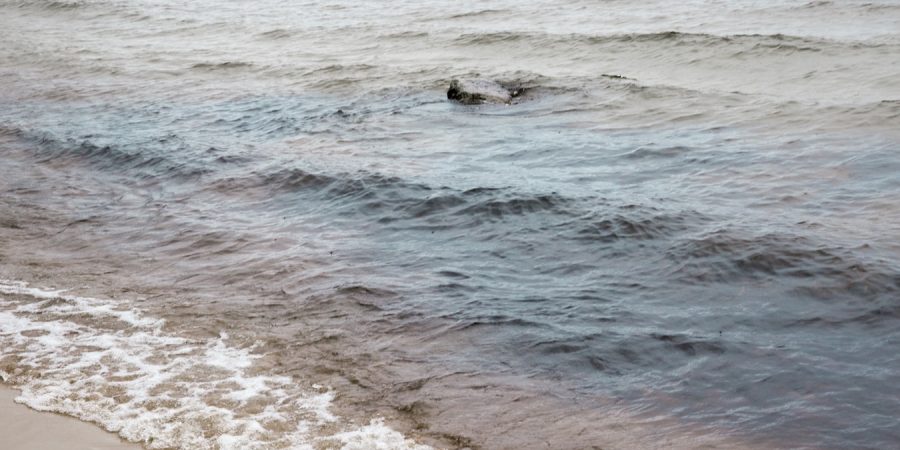If you decide to scatter a loved one’s ashes at sea or in some other area of water you’ll probably also be looking at a water urn to place the ashes following the cremation.
Water urns are specially designed to biodegrade when in the water making them an environmentally friendly way of commemorating a loved one who wished to be scattered at sea or river or stream.
This biodegradable element is very important. The UK doesn’t have strict laws regarding the scattering of ashes in waterways, but the environment agency is strict about water pollution and nothing that is not environmentally friendly or biodegradable cannot be put out as part of a memorial service.
Do I Need a Water Urn for Spreading Ashes on Water?
When you choose a water memorial service you (or it may be the wishes of a loved one) might decide to scatter the ashes directly over the water. In other cases you might want to place them in an urn and have them float on the water’s surface for a short period of time.
A water urn holds the ashes and is designed to absorb the water. After a short period of time the urn will be saturated and sink gently to the bed. There it biodegrades further, releasing the ashes into the water. The time it takes for the water urn to completely biodegrade can be anything from a few hours to a few days, depending on what material it’s made from.
Ashes are biodegradable and to prevent water pollution the urn must be too. That also means nothing other than the ashes can be placed inside the water urn.
What is a Water Urn Made From?
Water urns are made from a variety of materials, each designed with the environment in mind. They will float gently on the water for a few minutes before being consumed by the water. Often these urns can be buried too, for example, as part of a green funeral.
There is a huge variety of water urns on the market. The materials will depend on the type of urn (not all urns are traditional urn-shape. You will find things like turtles or small pillow-shaped boxes as water urns.) Common materials are:
- Mulberry tree bark paper
- Biodegradable clay and cotton
- Himalayan rock salt
- Sugarcane bagasse
- Recycled paper
You can scatter ashes directly across the surface of the water, however they can often blow back towards the service attendees, or stick to the boat if you’re out at sea. A water urn that floats and sinks slowly prevents these potentially distressing events, at what is usually a highly emotional time.
Do the Urns Degrade Outside of the Water?
Each urn is different but as a general rule an urn will usually last until it’s exposed to moisture. Himalayan rock salt urns, as with any form of salt, are usually very robust but salt will absorb moisture from the atmosphere so how you store them is key.
Scattering Ashes on Water
In the UK, the rules on scattering ashes on a waterway are fairly relaxed. However, the Environment Agency is serious about preventing water pollution. There is also some general etiquette and good advice that should be followed when scattering ashes on water, particularly if you aren’t using a water urn.
Only things that are biodegradable can be used in the service. So as a general rule you shouldn’t put anything in the water urn except the ashes
Most urns will come with a small plastic bag for the ashes, but this plastic bag is also biodegradable.
The laws for burials at sea are different to those concerned with scattering ashes and are much stricter.
Using a Water Urn on Private Land
One of the few laws around scattering ashes on water is that you’ll need permission fro the landowner. It’s also worth considering that you may not be able to go back to the spot to pay your respects.
This last point is certainly worth thinking about in more detail. Part of the grieving process is having an established memorial, or area you can visit, where mourners can look back over memories. It might be a problem if the grieving parties have nowhere to pay their respects.
Even if you are good terms with the private landowner you may not be able to visit regularly. And if ownership of the land were to change hands, you might find yourself unable to visit at all.
What is the Law for Using Water Urns in Rivers, Streams and at the Coast?
If you’re spreading ashes in rivers, streams or tidal waters that aren’t private you should be aware of the following guidelines:
- If you’re scattering within 5 miles of the coast be you should take care not to spread the ashes in areas that are not near buildings, not near wildlife (for example where fish swim) and not where people swim.
- As mentioned before, ashes can easily be blown around with coastal winds, so the easiest way to prevent anything being blown the ashes should be placed as close to the water’s surface as possible. Many people choose a water urn to prevent any ashes being blown around.
- Ensure the ashes are spread at least a kilometre upstream of any water extraction point. You may need to confirm their whereabouts with your local Environment Agency office.
If you want to scatter the ashes on a beach you could dig a small trench and place the ashes inside (people often choose heart-shaped trenches for example). Gradually the tide will wash over the trench releasing the ashes into the sea.
Releasing the Water Urn from a Boat
If you have access to a boat you can sail to the spot where you wish the to spread the ashes or release the water urn.
If you don’t have access you could hire a boat (and skipper) or use a professional service. Boat ceremonies are ideal if you want a private service or need to get to a remote or secluded area.
You can also hire a boat crew who will sail to the spot and spread the ashes or release the water urn on your behalf. Sometimes the families choose to attend in person,other times they choose to have the boat crew do it on their behalf.
In the case of a boat crew doing it on behalf of the family, there may be the option for a filming of the scattering and the family can get the exact latitude and longitude directions of where the ceremony took place.
Help from S Stibbards and Sons Ltd
If you would like to discuss your funeral plans with one of our funeral arrangers, then please contact us today. We’ll happily talk you through the different options and answer any questions you might have. Just call us on (01702) 558717, we are available 24 hours a day.







